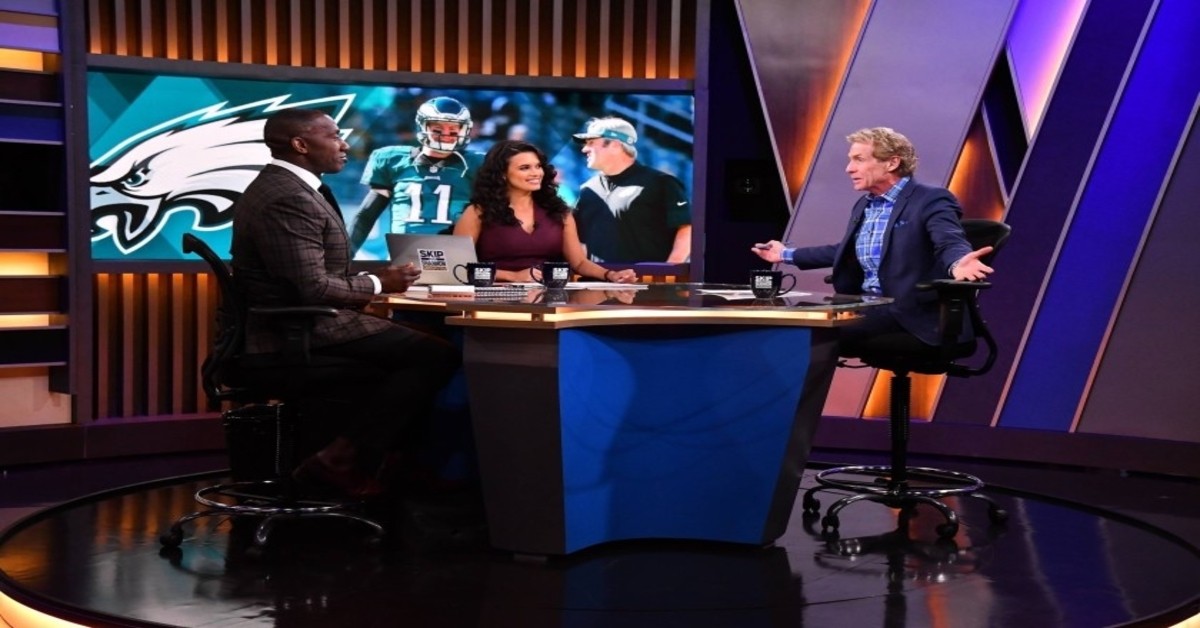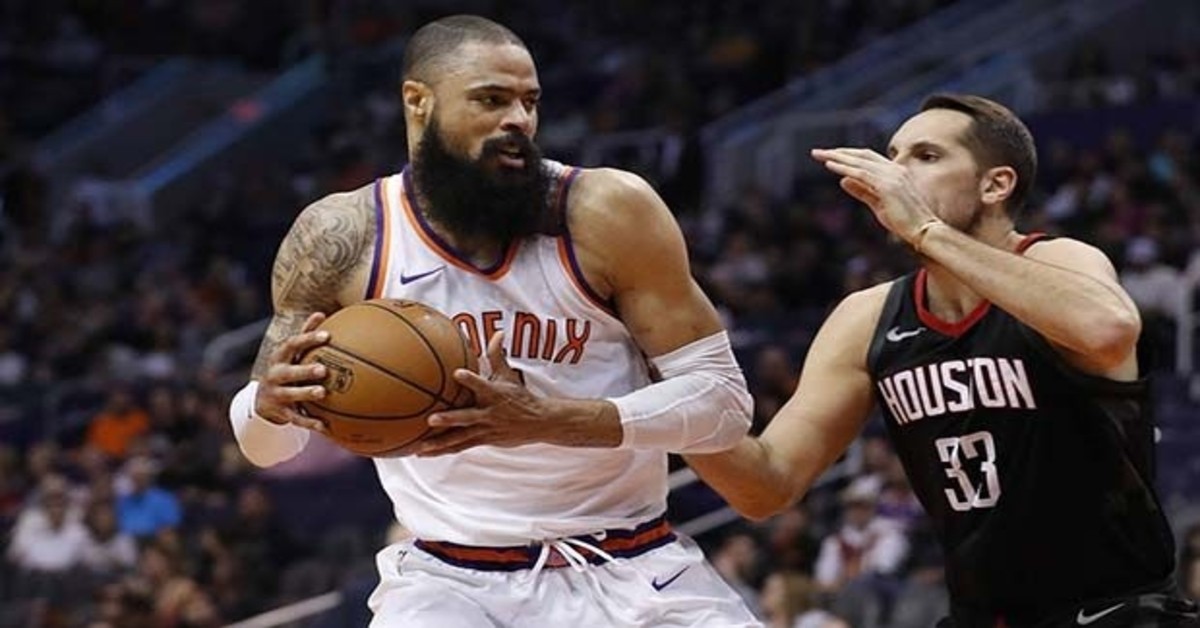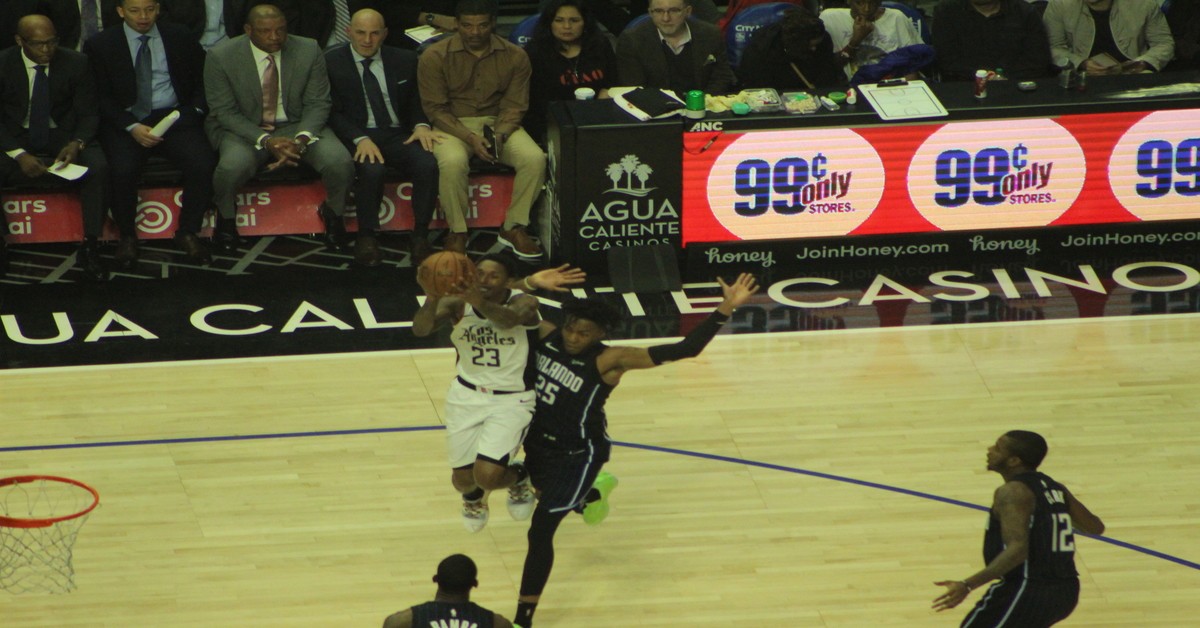One of the biggest relationships I’ve seen change within the last decade is that of an athlete and a media member. Since getting into the sports journalism business, I’ve seen changes in the dynamic alter between the two.
I’ve patterned my style of sports journalism as being messenger for both fan and player. I want to follow the team and let them get their voices heard as to how they feel. That to me gives the fans both far and wide an inside look as to how a particular player(s) are feeling about their team.
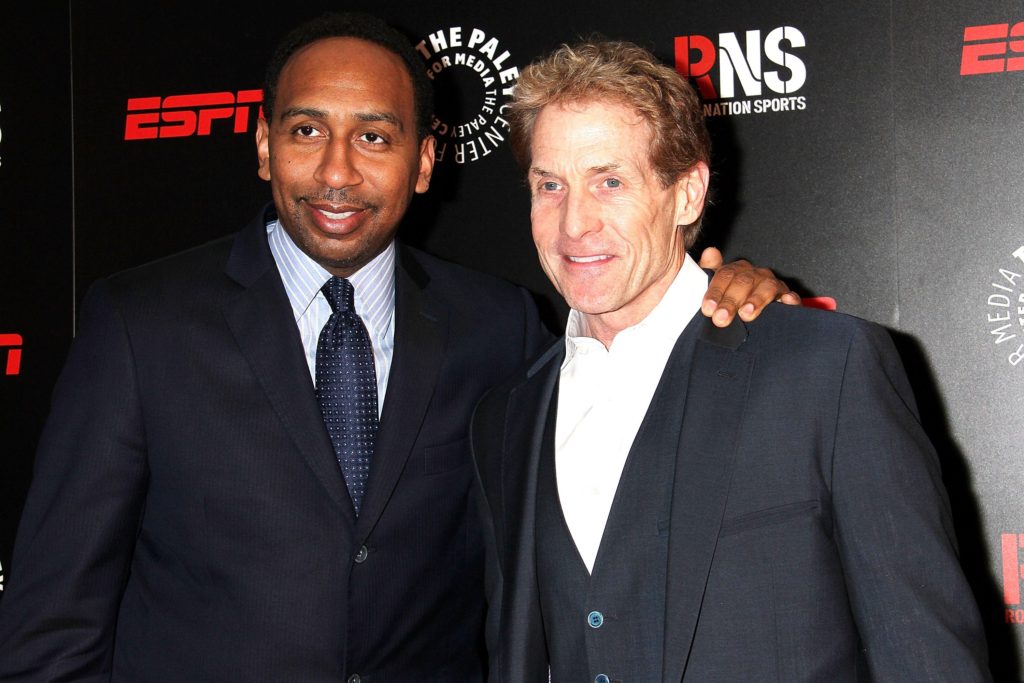
Boring to most but I’ve always wanted to stay fair.
Then you have your columnist. Those who don’t just tell you what happened in the game but they also give their personal thoughts on how they felt as the game unfolded. These are how individuals such as Stephen A. Smith and Skip Bayless got to where they are currently.
However, now we’re having an influx of former players that are now turning into analysts. When at a time, at least to me, the media was viewed as the enemy. People like Kevin Durant loathes the media entirely. Yet you have others such as Charles Barkley, who made a perfect transition from player to media member.
Yet, how did we get here? Why is now media something athletes are dying to get into now? Well I’ve seen it in a couple different ways. In addition, I feel it started with an arguement.
Journalism is now Entertainment
I rewatched a video that was from a couple of years back that was on First Take. Jalen Rose joined the desk and was having a discussion with Bayless. The conversation had went south, which was kind of Skip’s doing and Rose hit him with the famous or infamous, “Water Pistol Pete Jr.” line.
That conversation sparked a week of debate between journalists and athletes in regards to “How should media members approach talking about athletes?”
Rose’s argument was essentially once you get into name calling, the line is drawn. However, you had Skip selling the entertainment route. Which in a debate show is fair. You have to be entertaining for people to watch.
In addition, when you look at things nowadays between player and athlete, Skip’s argument has held true. We take in our sports differently now and it’s gone more the entertainment route.
Yet, in the grand scheme of things, Rose was defending how media members should handle themselves when talking about athletes. Good or bad. However, no press is bad press. Rose’s comment was entertaining. So much so, they debated about it for a week. You say something outlandish in the media today… you could become a star within minutes.
However, at the expense of you calling someone out of their name? Rose wasn’t having it. In addition, several players don’t like it either. It’s why many have taken their stories into their own hands.
We Tell our Own Stories
Social media has given the athletes power to tell their stories the way that they want to. Giving them the feeling that they no longer have to go to the media for them to tell their story or where they’ll play next year.
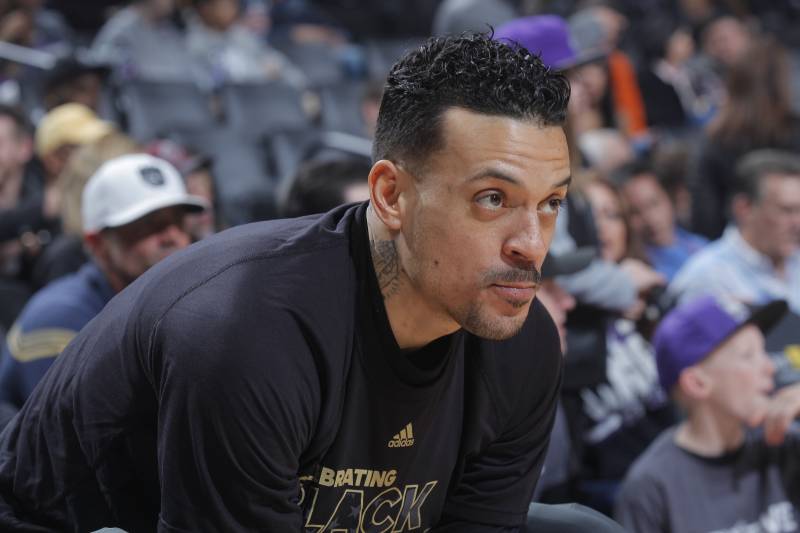
It’s given athletes such as Quentin Richardson, Darius Miles, Stephen Jackson and even Matt Barnes a platform to talk about sports the way they see it. I like it because some of these players have actual talent and are very good at what they do.
Yet did athletes feel they had to do this to protect themselves? Have they done this to not feel they’re being pressured everyday by members of the media to do something?
Athletes feel more comfortable around other athletes. In most cases, they feel like they get the rigors of being an athlete is and want a place to talk their truth without being under the microscope every time. Players now having podcast or being on major networks gives them an opportunity to in ways defend their own.
Athletes Gaining Appreciation for Media
I won’t say that athletes can’t be media members. Because they have a first hand experience on the game that some of us didn’t play pro. Yet, athletes aren’t being asked to be in locker rooms and become reporters. In addition, don’t have to endure what we have to with deadlines, following leads and getting information.
Players don’t have to worry about annoying a player for an interview or the boatload of other things in which we do in order to be great at our jobs. That’s a seat athletes don’t have to sit in in my opinion. Although many athletes have crossed over and have become great analyst.
Shannon Sharpe, Mark Jackson and others. Yet, I feel that maybe that former players are getting into the business, they may be gaining more of an appreciation for what a journalist does.
However, because athletes can now take their careers and even post-careers by the throat and guide it wherever, they can now be themselves and feel they don’t have to acknowledge the talking head media person to speak for them. Does that take away the journalist completely? No. However, I think it gives players a partial understanding of what we in the media do.
Earlier Exposure to the Media
The relationship has also changed because of how much younger these athletes get exposed to the media. Children are being interviewed and followed around at 13 years old nowadays if they’re a young phenom.
In a way, it helps them understand how to conduct themselves in front of the media. Kobe Bryant seemed very well spoken in front of the media at 18. Stephen Curry is great with media cause his dad played in the league. So, he got an idea of how it’s done.
Yet, you have those athletes, who get exposed young and can’t handle it. I don’t feel that athletes should be exposed to media till their at least a junior in high school. Yet, social media has changed the game in terms of exposure. For some, children can’t be children any longer.
Bronny James, Lebron’s son. Is it fair that he’s so in the spotlight as he tries to find his own way? Yes, he has a all-time great for a dad. However, what if he fails? ESPN will talk about him for years. How will he handle it?
Media… The Future?
Now it gets crazier as we deal with the coronavirus. Journalist now use social media more than ever. Platforms like Zoom have become prevalent. Could that be a new way of journalism for good in the next couple of months? It would definitely take away from the feel of being a journalist and covering things.
That will be something that you have to put a “To be continued” line for.

